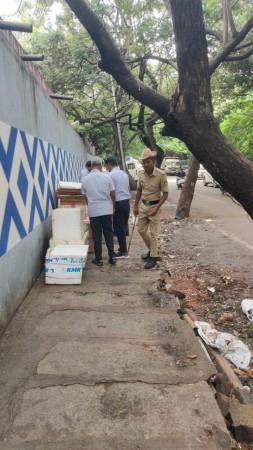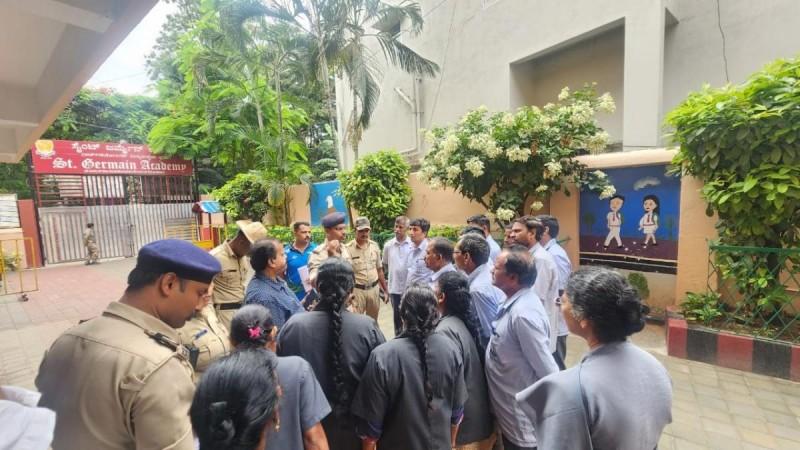
In a series of alarming events, educational institutions in Bengaluru and Delhi have been targeted by bomb threats, causing widespread panic and prompting immediate action from law enforcement. On July 18, 2025, 40 private schools in Bengaluru received a threatening email claiming that explosive devices had been planted within their premises. The email, sent from "roadkill333@atomicmail.io," contained violent language and threats, creating an atmosphere of fear among students, parents, and school staff.
The email's content was deeply disturbing, with the sender asserting that trinitrotoluene (TNT) had been placed in school classrooms. The message further stated, "I will erase every last one of you from this world. Not a single soul will survive. I will gladly laugh when I watch the news. Only to see the parents show up at the school and to be greeted by the cold, dismembered bodies of their children. You all deserve to suffer." The email also included references to the sender's mental health struggles, expressing a sense of hopelessness and anger towards psychiatric treatment.
In response, Bengaluru police, along with bomb disposal and dog squads, evacuated the schools and conducted thorough searches. Despite the alarming nature of the email, no explosives were found during the extensive operations. The incident has left parents and school administrations on edge, as they grapple with the implications of such threats on the safety and well-being of their children.
A Pattern of Threats
This incident in Bengaluru is part of a larger pattern of bomb threats that have affected both Bengaluru and Delhi in recent days. In the same week, nearly 100 schools across the two cities received similar threatening emails. In Delhi, over 60 schools were targeted, including prominent institutions such as St. Xavier's School in Civil Lines and Richmond Global School in Paschim Vihar. The emails sent to these schools mirrored the language and threats seen in the Bengaluru case, further heightening concerns about the safety of students and staff.
The Delhi police, like their counterparts in Bengaluru, launched immediate search operations, deploying emergency services including fire departments and bomb disposal squads to the affected schools. Despite the extensive searches, no suspicious objects were found, leading authorities to suspect that the threats were hoaxes. However, the psychological impact of these threats cannot be understated, as they have disrupted the normal functioning of schools and instilled fear among students and parents.
The recent wave of bomb threats is not an isolated incident. In December 2023, more than 15 private schools in Bengaluru received similar threats, which were later determined to be hoaxes. These recurring threats highlight the challenges faced by law enforcement agencies in addressing such incidents, as they must balance the need for swift action with the potential for false alarms.















